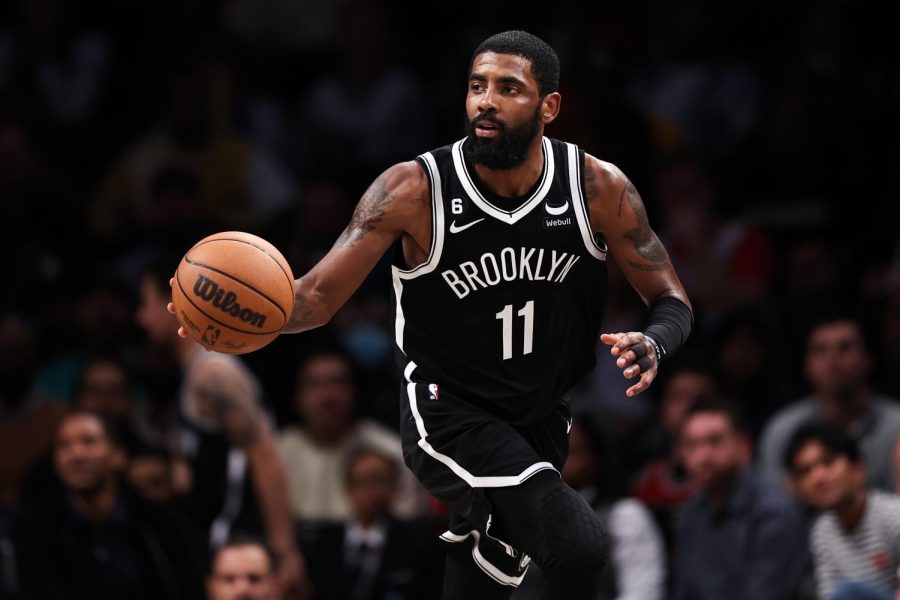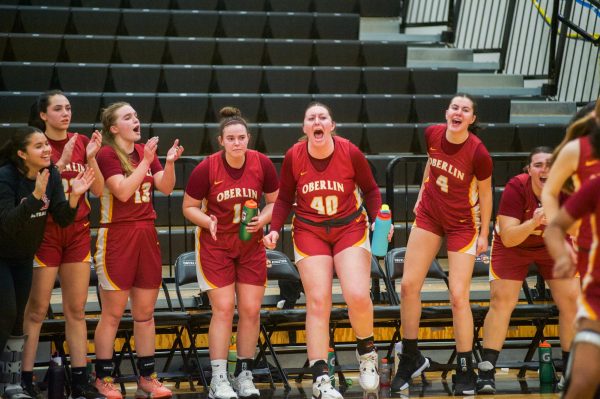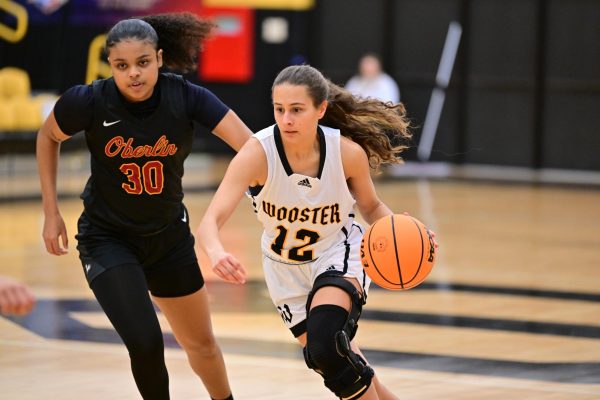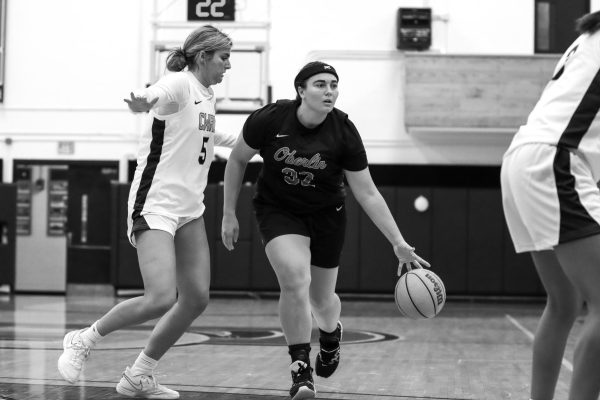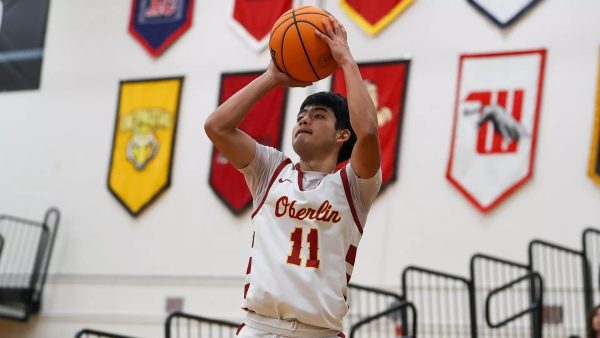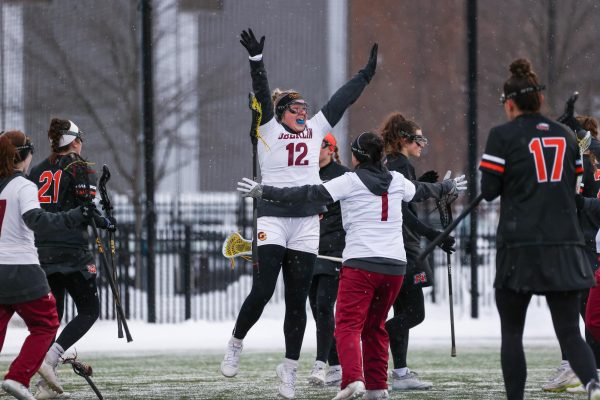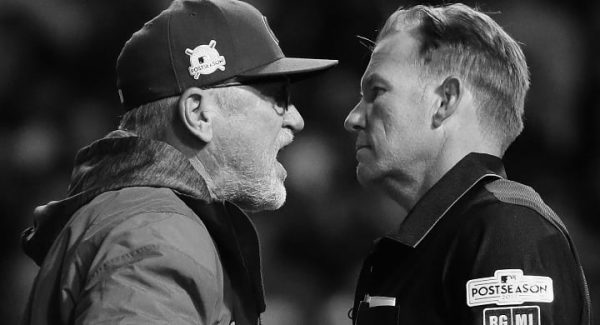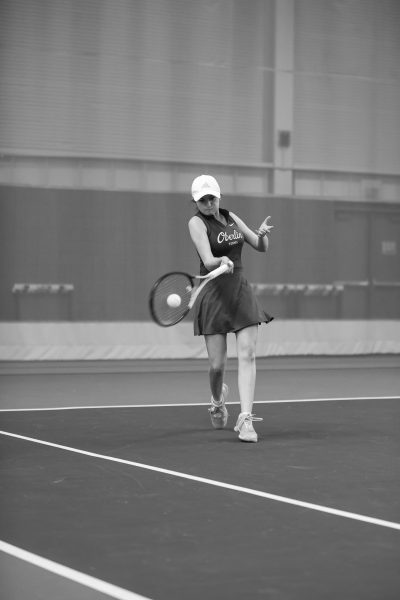Jewish Athletes Discuss Antisemitism in Sports After Kyrie Irving Suspension
NBA star Kyrie Irving dribbles the ball on the court.
Last week, NBA star Kyrie Irving was suspended indefinitely by the Brooklyn Nets for promoting an antisemitic film on his Twitter account then refusing to condemn antisemitism and declining to apologize. As a result, some have criticized the Nets for taking nearly a week to act. Despite the NBA’s continual efforts to make social justice a bigger part of their brand, NBA star Charles Barkley said that “the league dropped the ball.”
Most know that Asians face discrimination in athletics due to the model minority myth and that Black and Brown communities have less access due to systemic racism in the U.S. However, antisemitism in sports is often overlooked.
College fourth-year Oliver Ripps, men’s basketball manager and sports fanatic, said that although he has never been discriminated against in athletics for being Jewish, he is aware of prevalent stereotypes.
“There’s a stereotype that Jews are bad at sports, but it’s personally never made me feel like I couldn’t participate in athletics anywhere that I’ve been,” he said.
Unlike Ripps, first-year women’s soccer player Sydney Epstein has experienced antisemitism in athletics. Growing up in Indiana, a state with many rural communities, Epstein also had to be cognizant about concealing aspects of her Jewish identity.
“Many antisemitic tropes and stereotypes have been used to describe me or my Jewish teammates,” she said. “Whenever we would travel for sports, I would have to be very aware about things, like if I was wearing my [Star of David] necklace or anything identifiably Jewish. Having to hide at times things that make me more noticeably Jewish was definitely hard and has shaped my Jewish identity a lot.”
While Epstein doesn’t necessarily believe that the Jewish community has less access to athletics than others, she wants awareness about the limitations they face.
“In high school, many times sectionals were scheduled on high holy days — the holiest days in the Jewish calendar — so I had to pick between my commitment to my sport and team or to my synagogue and family,” she said. “One of my best friends in high school had to miss every Friday night and Saturday morning game for her sport so she could attend Shabbat services.”
Similar to Epstein, third-year football player Jack Diskin has experienced discrimination in football and often had to choose between sports and religion, especially throughout his childhood.
“All through high school, [antisemitism] was something I had to deal with from friends and teammates — it became so persistent I eventually became numb to it and just ignored what was said,” Diskin said. “I wasn’t able to play football until an older age because my parents weren’t okay with our games being played on Saturdays. I grew up in a pretty religious household, and throughout most of my childhood, Saturdays were a sacred day — the Sabbath — where we wouldn’t do work. It’s said in the Torah that Saturdays are the day of rest. Once I was a bit older, it became hard for my family to maintain a strictly religious household, [so] I was able to actually play football.”
Fourth-year baseball catcher John Schooner said that he hasn’t experienced harmful antisemitic behavior in sports, but he knows it exists and believes that Jewish athletes can feel excluded because the athletics community is predominately Christian.
“There’s a ton of religious imagery in sports today, but the vast majority of it is Christian: players coming together to pray before or after games, wearing crosses,” he said. “I don’t see it as an issue necessarily, but it definitely creates boundaries to some extent that end up leaving Jews — or any other minority religious group — on the outside.”
The news about Kyrie Irving has left Epstein feeling disheartened, but she is glad that the public is condemning him for his actions.
“I am glad that many are taking a stand against him in the league and calling him out for what he’s done,” she said. “There is a lot of growth and learning on his part that needs to be done. The number one thing that can be done about antisemitism is education. Just learning about Judaism and the culture prevents stereotypes and tropes spreading, as well as showing that there are more commonalities than differences between Jews and non-Jews.”
Ripps is encouraged by increased representation in professional and collegiate sports. He highlighted the rise of Yeshiva University’s basketball team and Ryan Turell as the team’s star athlete, and believes that this kind of visibility will inspire future generations of Jewish athletes.
“Seeing an athlete like Ryan Turell — who is an Orthodox Jew playing in the G league — shows that anything is possible,” he said. “The way the Pistons affiliate has accommodated his religious needs shows that sports are learning how to support practicing Jews. … Whenever people come together over sports, it’s always wonderful to see.”


